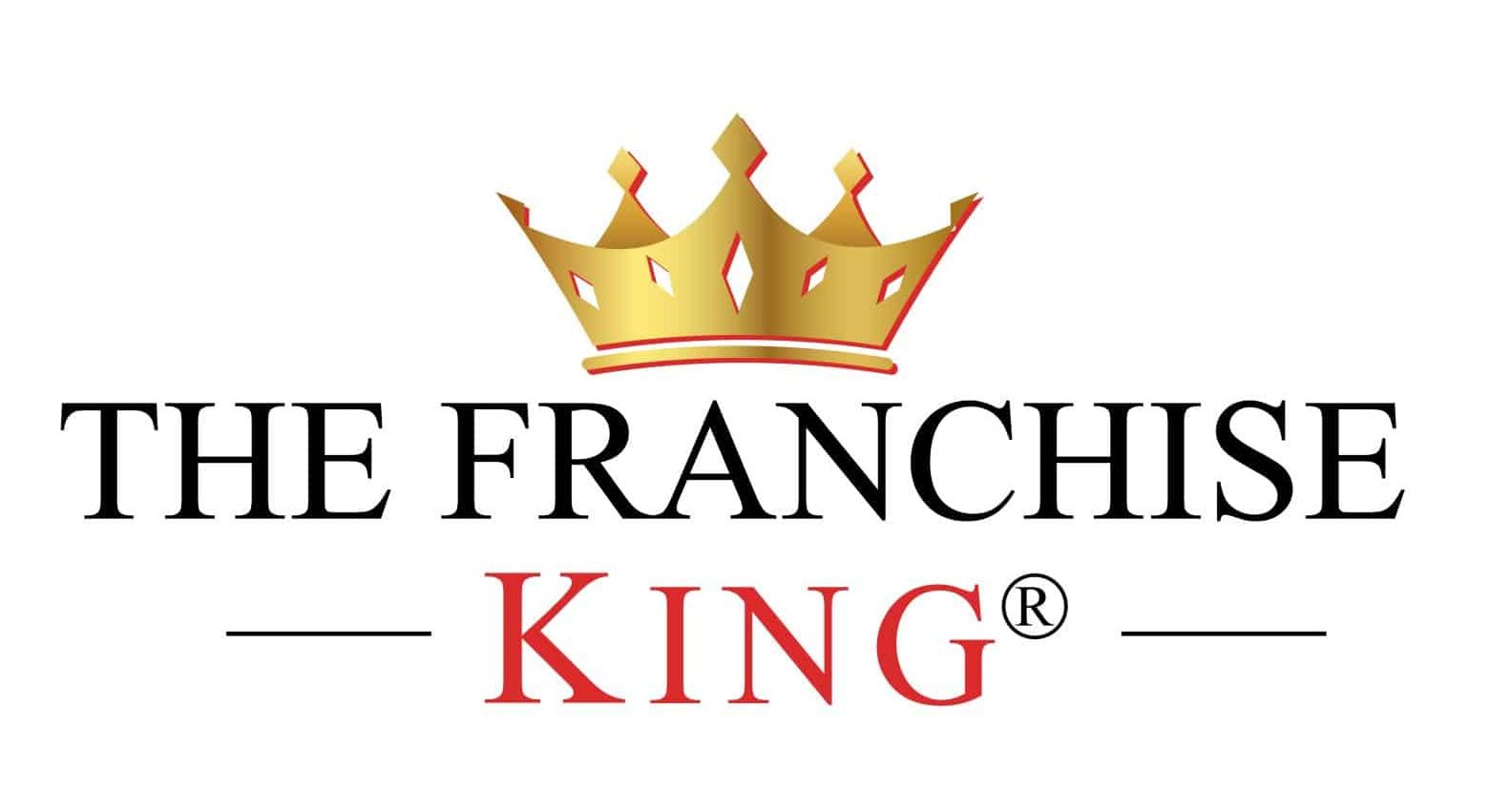
Done right, franchise due diligence provides you with the vital information you need to make a smart, profitable choice in a franchise to buy.
But if you do it wrong, because you didn’t take to the time to learn how to do your franchise research right, or worse, you were given false or misleading information, it can cause serious financial harm.
With that in mind, know this.
I take my role as a Franchise Ownership Advisor seriously.
That means I focus on the things that will improve your chances of success as a franchise owner.
And that includes making you aware of people, places, and things in my industry that have the potential to hurt your chances of success. Traps.
So keep reading, if “avoiding financial harm” sits at the top of your list.
New York Bagel Franchise Execs Sent To The Slammer
I’m not going to call out New York Bagel franchisees for their poor due diligence techniques.
That’s because it wouldn’t help them get their money back. From who?
Check this out, courtesy of Justice.gov, an official United States government website:
“According to court documents and statements made in court, Joseph Smith, of Fishkill, owned and operated New York Bagel, a business that operated in Pennsylvania and other states. Smith and Dennis Mason conspired to defraud individuals who sought to open new franchises of New York Bagel. Smith and Mason induced the prospective franchisees to open up New York Bagel stores by understating the startup costs, overstating the number of franchises that were up and running, and exaggerating the financial success of existing franchises. Smith and Mason charged prospective franchisees fees ranging between $7,500 and $44,500 to gain rights to open stores. When prospective franchisees learned of the misrepresentations, Smith refused to refund these fees.”
Pretty ugly stuff.
That said, I’m not sure how the money stuff works in federal cases like this.
Specifically, I don’t know how the franchisees will get their money back-or if they can at all. I hope so.
But if there’s a silver lining to the nightmare several New York Bagel franchisees have been going through, it’s this:
It may be that current and/or future shady franchisors, franchise consultants, and franchise suppliers (including owners of certain franchise opportunity websites), will now think twice about providing misleading information, including franchisee income.
Nah. Probably not.
Note: I’m willing to bet that Senator Cortez-Masto, who’s been pressing for more transparency regarding franchisee earning information, would be very interested in what I’m about to share.
“We expect you to be making nearly $300k with your franchise”
Who said that?
The same people who sent me this email.

There are lots of dangerous words there.
Why are they dangerous?
Because anyone who’s in the market for a franchise (a franchise buyer) instantly focuses on one thing.
“Invest $267k, make $267k a year, sell your franchise for $1M+…It’s possible with ______(I refuse to type in the name of the franchise).
That one thing is the word “make.”
Franchise Due Diligence: Inside The Mind Of A Franchise Buyer
Let’s say someone who’s interested in buying a franchise received that email, and reacted in a 100% normal way.
“Wow! That’s good money. All I need to do is invest around $270,000, run the franchise and I’ll make $267,000 a year? And when I decide to sell my franchise business, I’ll get over $1 million for it. I’m in!”
So just like that, the owners of a certain franchise opportunity website have convinced an aspiring franchisee (who requested information and is now on their email list), that he can make close to $300k a year by investing in the franchise they wrote about.
“Wait, Joel. The email they sent doesn’t actually say he’ll make $267,000 a year. They said it’s possible.”
Righteo.
But in our fast-paced world, in which most people skim rather than take the time to read every single word included in one of the dozens upon dozens of emails they receive on a daily basis, what do you think they see when they read something like that?
Going deeper, what do you think someone who’s desperately trying to leave the corporate world in one piece sees?
They see a way out. A $267,000 a year way out.
As the owner of something.

Where Does This Franchisee Earnings Information Come From?
Just so you know, the $267,000 a year franchisee earning information comes from documents anyone can get their hands on for free.
Note: I recently wrote about how you can get these documents too.
In this case, that annual income number comes from what’s known as a franchisee earnings claim. And it’s what some franchisors include in Item 19 of their Franchise Disclosure Document.
Several Franchise Websites Include Numbers From FDD’s
If I wanted to, I could launch a franchising website that spews out information gathered from FDD’s, too. And I could market the website as a “Franchise Due Diligence And Franchise Data” website. But I’m not going to do it. Because it doesn’t bring a lot of value to today’s franchise buyers.
Nor would I ever send out an email suggesting someone could “Invest X amount of money, make X amount of money a year, and then sell it for X amount of money.”
Why wouldn’t I do that?
Because doing so would put me, my business, but most importantly, my reputation on an extremely slippery slope.
That said, it’s something people with limited knowledge of franchising do. They think it’s okay. For them, it’s a business decision.
But for me, it’s a moral decision.
In addition, to me, it borders on an illegal earnings claim (although I’m not an attorney).
There’s more.
“We expect you to be making nearly $300k with your franchise”
The email forwarded to me about Crumbl Cookies included a link to a video. And the video included the sentence above plus these gems:
“They’re all doing pretty well in this franchise system from what I’ve seen.”
Really?
What have you seen, exactly?
“We expect you to make your money back within 2.5 years. And some have made their money back faster than that.”
Great. Who has? Name names!
“My bet, by 2024, 2025, Crumbl Cookies is going to owned by a larger company.”
And that’s supposed to be a good thing?
Not to me.
But it will definitely be good for the folks who came up with the concept. They’ll be instant multi-millionaires. And that’s fine. I just worry about the franchisees. What changes can they expect? Wait. I’m not done yet.
The owners of the website (I’m not mentioning it by name) have the audacity to share this little tidbit contained in a post they wrote about this cookie franchise:
“Lack of Crumbl Franchise Opportunities Available to Open In The U.S.”
So again, not only have they suggested you’d make almost $300k a year as a Crumbl Cookies franchisee, they’ve taken that attractive annual income number away from you (unless you live in a part of the country where franchises are still available). Nice.
The Whole Point Of This Post
Setting false expectations for franchise buyers is bad for the franchise industry.
In this case, it’s by insinuating that all a potential franchisee needs to do is invest $267,000 in a Crumbl Cookies franchise, and she’ll make $267,000 a year. Look at it again:
“Invest $267k, make $267k a year, sell your franchise for $1M+…It’s possible with ______(I refuse to type in the name of the franchise).
I know…I know. It’s “possible.”
But I call B.S. on that, because I know how people see things.
And speaking of “possible,” I guess it’s also possible for you to only make $67k a year if you become the owner of a Crumbl Cookies franchise. Right? Heck, I’ll go one step further.
It’s entirely possible you’ll lose your entire $267k investment! How?
You could choose a horrible location…or one that becomes a horrible location.
That’s right. Becomes.
Stuff Happens
What follows are some examples of things that can quickly put the kibosh on franchisee income and revenue. This first one is a doozy.
What if a 12-month road construction project begins right in front of your new franchise business a mere 6 months after you’ve opened your doors?

Or what if something happens that no one could have predicted?
Like a business-shuttering pandemic.
Finally, what if you buy the franchise you fell in love with too late in the game?
For example, do you really think expensive, gourmet cookies will always be a thing?
That said, if you know anything about franchising, you’re acutely aware of fads. Of trends. Especially in the fast-paced world we currently live in.
Here’s a short video on due diligence for a franchise:
Vet The Places You’re Getting Franchise Due Diligence Information From
You need to seriously vet the places you get your franchise research information from. Why?
Because as of late, some of the newer franchise opportunity websites you’re going to run across are almost 100% focused on numbers and stats. And they’re being launched by people who don’t come from the franchise industry.
As a matter of fact, I’ve found that some of these website owners have a background in investing. They come from Wall Street. A place focused on big business investing. Not small business “investing.”
More importantly, these folks don’t know franchising as well as franchise industry professionals with decades of experience.
In fact, they’ve never been a franchisee. They’ve never managed/operated franchise businesses. And they’ve never bought and sold franchises. They’re learning as they go.
Just like you.
Feel me?
The Key To Proper Franchise Due Diligence

(Get my franchising↑ due diligence guide)
This post is less about the franchise opportunity websites that present numbers and not much else, than it is about how to conduct due diligence when buying a franchise business.
Simply stated, proper franchise due diligence involves focusing most of your time on getting to know existing franchisees. Because they’re the people who are doing what you think you want to be doing.
That means you need to call and visit lots of existing franchisees. Verify any numbers you find with them. How many?
Commit to calling a minimum of a dozen franchisees (15 would be better), and visit at least one franchise owner in-person. And make sure you do your best to get to know them.
That means talking to them about their lives. Finding out what they’re getting out of owning the franchise business you may want to own too.
Then, when the time is right, you can ask them about their revenues and profits.
And if you ask them nicely, in a conversational tone, I promise you’ll get the information you need to make an intelligent, fact-based yes or no decision on the franchise you’re looking to buy.
Not Franchise Due Diligence
There’s no way for me to sugarcoat this.
If you’re only looking at numbers, you’re not doing thorough franchise due diligence. You’re doing a disservice to yourself. I’ll explain.
A few years ago, I talked with a potential client who told me the following:
“Joel, I’m going to look at 3 restaurant franchises. I’ll get the numbers from each of them, and whatever franchise has the best ROI (Return On Investment), that’s the one I’m going to buy.”
At first glance, you feel this person is on the right track. After all, who doesn’t want to make the most money possible?
But what if the franchise you’re interested in buying (the one with the highest ROI) happens to have a bunch of unhappy, miserable franchisees?
I’m talking about franchisees who are making good money but aren’t happy with the way things are going. As in, extremely unhappy franchisees.
What would you do?
Would you still buy the franchise with “the best numbers?”
Again, would you buy a franchise you’re fairly confident you can make good money owning, but has a large number of dissatisfied, angry franchisees?
My point?
There’s more to franchising than ROI.
On Ethics, Culture And Support
If you’re someone who’s only looking at your ROI, this short section isn’t for you.
With that in mind, here are a few things (besides RIO) you need to consider before you sign on the dotted line.
For one, the ethics of the franchise organization. is the company and their executives trustworthy?
Secondly, the culture at headquarters. How did things seem when you visited headquarters. Did the employees seem focused? Happy? What were the executives like? Do you feel they’d support you if you become a franchisee?
Third of all, you need to see how franchisees interact with each other.
Do they act like they’re on the same team?
Or did they come off selfish?
Finally…and this one’s important:
Are the franchisees happy and profitable?
I hope so.
Because that tells you a lot about the company.
Something the numbers don’t.
About the Author
The Franchise King®, Joel Libava, is a leading franchise expert, author of "Become a Franchise Owner!" and "The Definitive Guide to Franchise Research." Featured in outlets like The New York Times, CNBC, and Franchise Direct, Joel’s no-nonsense approach as a trusted Franchise Ownership Advisor helps aspiring franchisees make smart, informed decisions in their journey to franchise ownership. He owns and operates this franchise blog.
Note: When you buy through links on this website, we may earn an affiliate commission.








